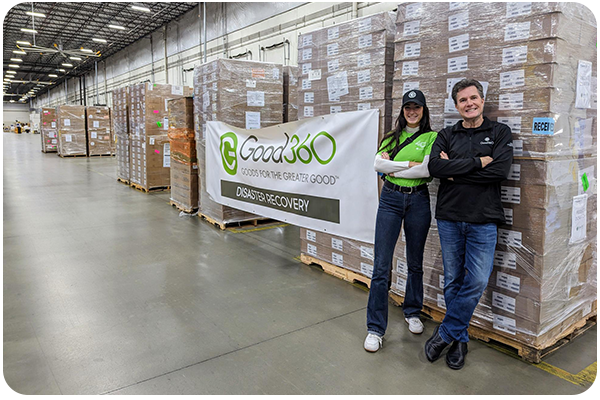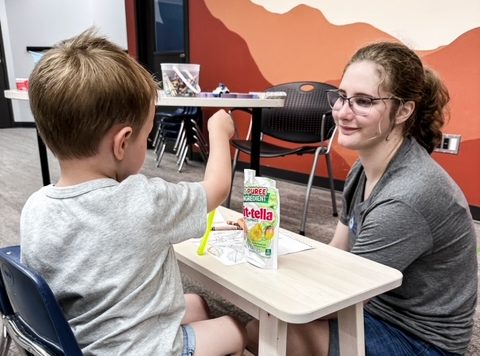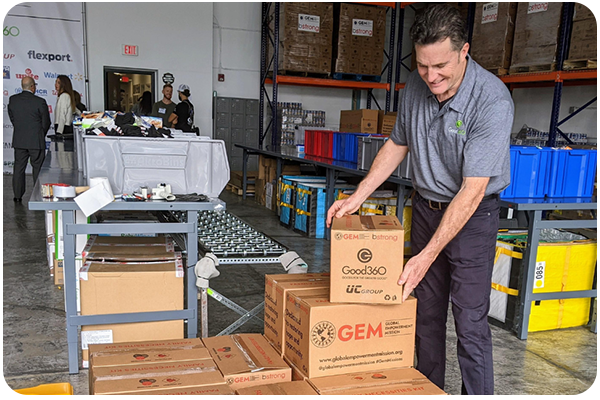The Key Pillars of Resilient Response
Blueprint for recovery: How our disaster relief principles define our commitment to disaster relief.

Be Proactive
Anticipate and prepare for disasters by implementing proactive measures that enhance response speed and efficiency to build resilient communities

Ensure Community-Driven Distribution
Prioritize the unique needs and characteristics of each community, with a focus on the most vulnerable communities.

Incorporate Equity
Integrate equity considerations into all aspects of response efforts, recognizing and addressing systemic disparities that exacerbate vulnerabilities within certain communities.

Informed Engagement
Educate key audiences to create knowledgeable partners who feel informed and empowered to proactively and collaboratively provide short- and long-term support.
The Resilient Response Movement
In 2016, Good360 founded the Disaster Recovery Council to help companies give more effectively and efficiently in response to disasters as well as helping communities build resilience to better withstand and recover from catastrophic events. Two years later, Good360 and our council members partnered with All Hands and Hearts – Smart Response to launch a campaign around thoughtful giving called Resilient Response.
Since launching in 2020, our list of pledge partners has grown to over 65 companies and nonprofits committed to the six key pillars of disaster recovery listed above. By taking the Resilient Response pledge, you’re joining like-minded organizations that help provide the right goods to the right people at the right time throughout all stages of disaster recovery.

Help Us Get Goods Distributed Faster
When you donate warehouse space, you help ensure basic essentials like personal care items, clothing, bedding, and cleaning supplies are ready for distribution at a moment’s notice before a disaster hits. Pre-positioning products in high-risk areas enables us to serve nonprofits faster, eliminate overnight shipping costs, and rush rapid response to survivors with the greatest need. Join our socially responsible corporate partners and be part of the pro-bono warehouse network that allows us to better serve communities impacted by disaster.
Resilient Response In Action
View All
Toys for Tots Donates Over 1,000 Toys to School Field Day Event
Good360 ·12.09.2024

Building a Caring Environment for Foster Families
Good360 ·11.21.2024

Toys for Tots Provides Toys for Field Day Event at Idaho Elementary School
Good360 ·11.05.2024
Load More






